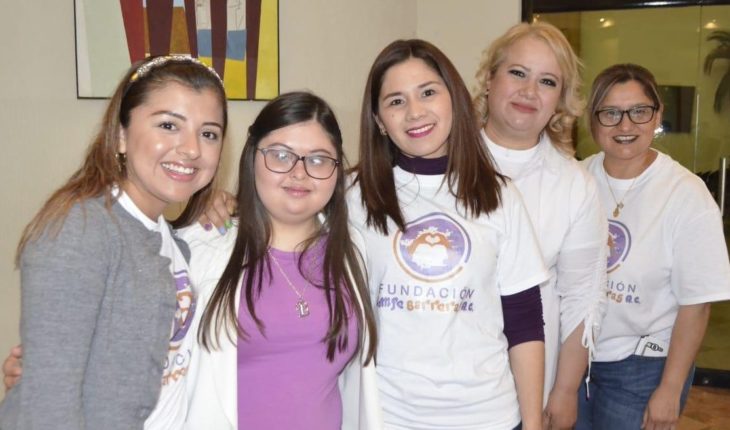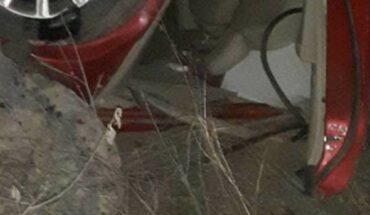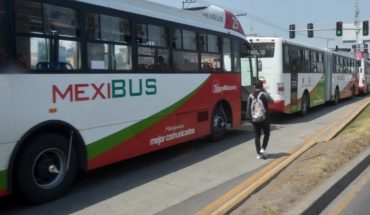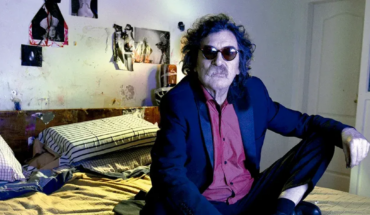“I don’t believe in the word difficult, for me anything is possible,” says Brely of the Rose and Flowers. The 20-year-old has Down syndrome, but that had never been hindered from finishing her studies, until she tried to enter college and fulfill her dream of being a teacher.
Originally from the municipality of San Juan de Sabina, in Nueva Rosita, Coahuila, Brely has always studied in public schools.
From preschool to high school, he didn’t face as many barriers to integrating with his peers and graduating along side with them, as he experienced it at the top level, where he encountered discrimination and lack of tolerance from teachers.
Brely has gone through two universities: the Autonomous University of the Northeast (UAN), Sabinas campus, where he studied a semester of Psychology, and the National Pedagogical University (UPN), Coahuila campus, where he spent a semester and a half in his career in Educational Psychology.
Read: People with cancer face discrimination and pressure to quit their job
In both he experienced situations that forced him to unsubscribe. At UAN, “teachers were not held accountable for me (…) I studied like any other student but with the difficulty of acceptance and patience.”
While at upN “I was welcomed very well and said that there I would have the necessary amenities but it was not so. On one occasion I had two exams in a single day, just me, it was a lot of pressure but it helped me move on.”
After a semester and a half at UPN, Brely left the institution after “certain discomforts and acts of discrimination by three teachers.”
Despite these two experiences, Brely has not stopped trying to be a teacher so she now seeks to enter the Experimental Normal School of San Juan de Sabinas.
On two occasions it has submitted the examination but has not reached the number of hits required by the institution.
“There is no inclusion they promote”
Both the young woman and her parents consider that not achieving the score required by normal is a reflection of discrimination against people with disabilities.
So they filed an amparo in federal court, arguing that the school had to make accommodations in the selection process for Brely and make the contest fairer.
Find out: Child workers at the Metro and Central De Abasto face educational lag, discrimination and violence
A few days ago, the Third District Judge residing in Piedras Negras granted the final suspension of the act claimed by Brely and ordered the school principal to admit her and register her as a student.
On Wednesday, the family showed up at the school with this document, however the director of it, Gabriel Mares, refused to abide by the order.
He argued that it was a decision that did not depend on him as his responsibility was to abide by the guidelines established by the Secretariat of Public Education (SEP) for the selection process.
“It is not an act of discrimination, I owe to the indications that the Secretariat of Education and its regulations, which ask to meet certain requirements and do not mark exceptions for these cases (…) I have to abide by what marks my authority, ” said Mares to Political Animal.
The director explained that it will be the legal area of normal de Saltillo that resolves the situation once the final ruling of the case is held, which will happen this Friday.
“I am the least suitable person to say I accept or do not accept, here the one who has to attend these types of requests is the SeP because they are standards at the federal level,” he added.
They don’t ask for preference just inclusion
However, for Brenda Flores, Brely’s mother, the need for her daughter to be rejected on the same criteria as the rest of the students is an act of discrimination, and that “their right of education is being violated.”
Brenda supports her argument in article 3 of the Constitution, concerning the right to education, and in the 12th of the General Law on the Inclusion of Persons with Disabilities, which promotes the inclusion of persons with disabilities at all levels of the National Education System.
“They’re putting up a barrier to inclusion because they’re asking you for something you might not be able to accomplish like the rest (…) the claim as parents is that how you promote educational inclusion if in practice they are not able to comply,” he adds.
In this sense, both Brenda and Brely clarify that they do not ask for an amendment to the entrance exam, but to the selection requirements, that is, to the number of successes or requirements that must be met by persons with disabilities.
“The admissions test is not a barrier for us, perhaps the only time, which lasts about two hours, but any victory has its failures and sacrifices and one has to endure the two hours of the exam and apply it in order to enter and study whatever you want,” Says Brely.
Read also: Discrimination, neglect and violence, what children live with mothers and fathers in Mexican prisons
The young woman does not trust the ruling in her favor and knows that Normal School is likely not to enroll her as ordered by the judge, so she will make a third attempt with the admission exam in the coming months.
According to Brenda, on the previous two occasions, her daughter has been left a short of being among the students accepted so she hopes that with the resolution of the judge, the Experimental Normal School, through the Secretariat of Public Education, will make the necessary adjustments and your daughter will be accepted.
A system that requires change
Brely believes that the situation for people with disabilities goes far beyond the barriers in the admissions process.
“My complaint is about the system in general and not about the exam, I think the important thing is that we don’t feel pressured by the difficulties we have, we have to improve the interaction between teacher and student, that we know that we can count on teachers, that a relationship of trust can occur.”
Because of the bad experiences with several of his teachers, Brely believes that educational authorities should work harder to prepare and raise teachers’ awareness of learning rhythms for people with disabilities.
Although the hardest part has been her time at college, the young woman accepts that since high school she struggled to keep up with her classmates.
“In high school I was like any student, but I wouldn’t have survived without the help of a friend who helped me a lot. In high school I was in no hurry to go to the rhythm of others, I had difficulties with some teachers but I always took it patiently.”
Her mother is proud of Brely’s accomplishments.
“We’ve always supported it, but it’s been a harder job the last two years (…) we’ve had teachers who said I’m not a special education teacher and I can’t handle this, but we always saw a way to support her with tutors because of the teachers’ inattention,” she says.
He says they were taken by surprise by the fact that it is at the top level where there is the most exclusion and discrimination, when one has the idea that it is where teachers will provide the most support.
“We believed there would be more educational inclusion in the careers you chose, educational psychology and preschool education, which are very close areas of disability, but it wasn’t,” he says.
The dream of being a teacher
From an early age, Brely showed an interest in preparing and sharing that knowledge with others, but it was until high school that she defined that she wanted to be a teacher, just like her father and grandmother.
Despite the stumbles, Brely has never stopped preparing. He speaks English perfectly, as well as a little Portuguese and French.
It also has an NGO called Fundación Rompe Barreras A.C, which started a year ago with the intention of supporting and advising people with disabilities.
Currently, as far as his admission to a university defines, Brely takes her language classes and a computer typing course.
“What motivates me is my family, my parents, and all the support they give me (…) they have been more than my mentors always push me to want more and achieve it.”
Brely agrees not to enter Normal was a hard experience “I felt disappointment and hopelessness I didn’t want to take another test but my father encouraged me and I keep fighting and studying, growing more and more.”
The young woman wants to gain her income to achieve her dream of being a preschool teacher and an activist in defense of people with disabilities.
To people with disabilities who want to continue their studies, Brely tells them not to give up, to fight and to fulfill everything they set out to do.
While teachers and people in general are asked to “raise awareness of inclusion and acceptance (…) we need people to become aware, to learn to respect other human beings and not by their appearance as we all feel the same; on the outside we seem different, but inside we don’t, we’re the same in feelings, and that’s why we don’t have to discriminate.”
Brenda, her mother, expects education authorities to give her an opportunity like anyone else and hopes her daughter has a precedent on the issue of educational inclusion at the top level.
“We’re going forward on this path that touched us. Brely is breaking his way, we have never limited it and we never will, her life has been challenged after challenge,” she concludes.
What we do in Animal Político requires professional journalists, teamwork, dialogue with readers and something very important: independence. You can help us keep going. Be part of the team.
Subscribe to Animal Politician, receive benefits and support free journalism.#YoSoyAnimal





